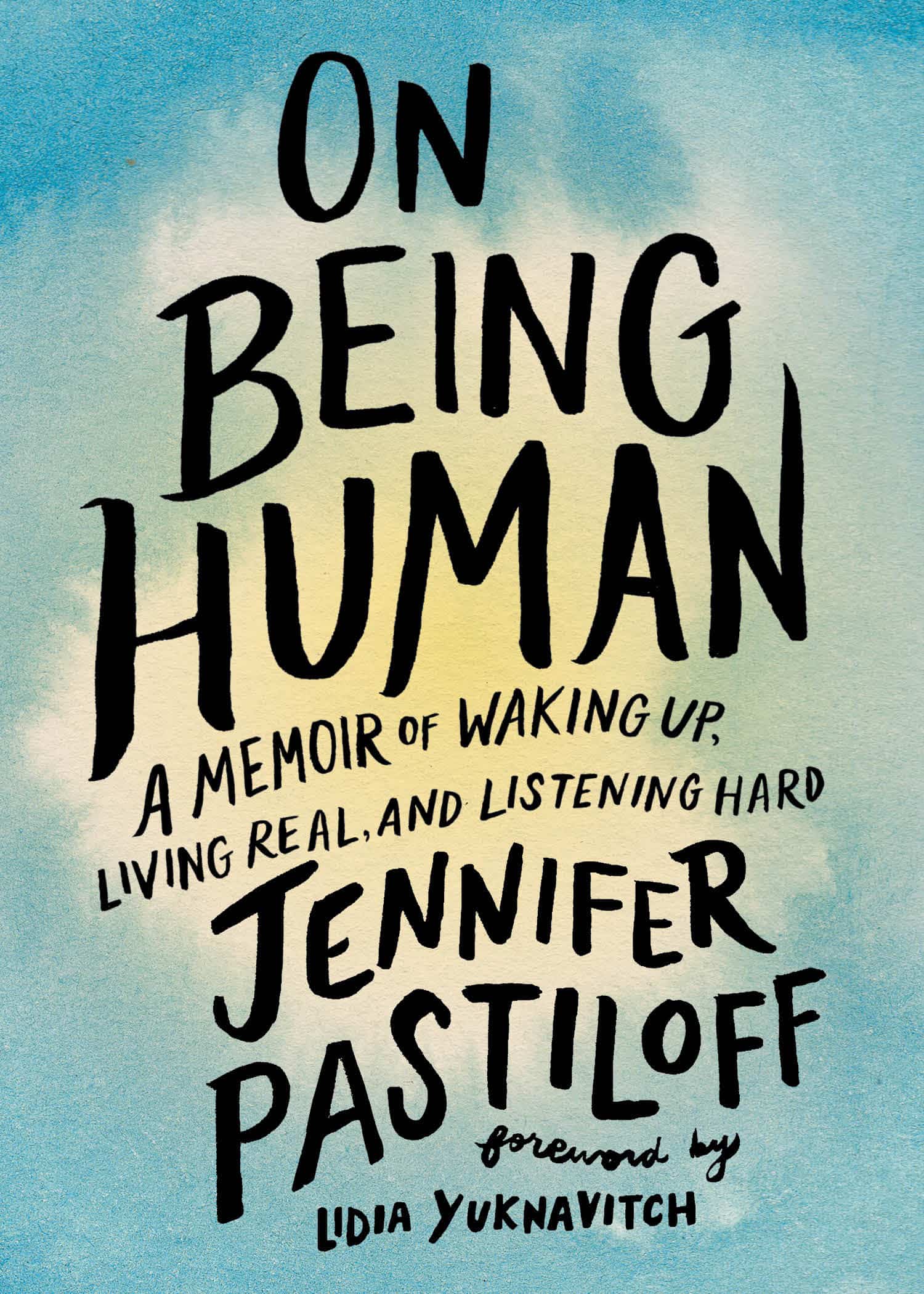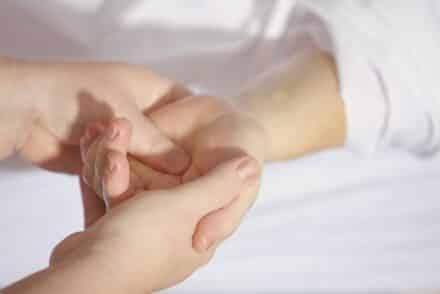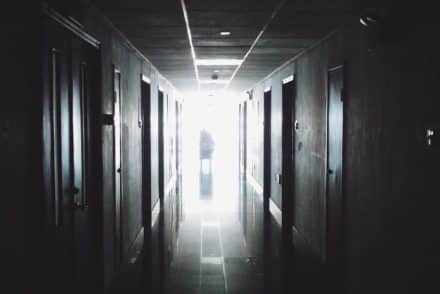By Susanna Donato
Just over a year ago, on March 23, I was diagnosed with autism. By now, I’ve shared that information with many people in my life, including family, friends, and colleagues. Some of them, when I’ve explained, have said something along the lines of, “Oh! Yeah, you’re a little different, but I thought that was just a Susanna thing!”
Still, even though I don’t think “coming out” as autistic—sharing what’s essentially a medical diagnosis—is an obligation, I’m starting to feel a little lily-livered about posting resources and information and commenting on other people’s posts without sharing the reason I’m doing so or my perspective.
I’ve been reluctant to “go public” mainly because I don’t want people to judge me. When I told one friend, he took a step back and asked if I was OK.
I’m OK. I’m definitely OK. Autism isn’t contagious. It isn’t a deteriorating condition. And there are so many people like me. While the stereotype of autism may still be a boy with verbal and/or intellectual challenges—and don’t get me wrong, those individuals absolutely are present and deserve the same rights as anyone!—half or more have IQs that are average to above average, sometimes way above average. (Though non-speaking doesn’t mean non-communicative.) Lots of us are women, and a bunch are nonbinary or identify in other ways. And all of us, God willing, grow up and become adults.
Diagnosis = good news
For me, the diagnosis was good news. It doesn’t change anything. I’m the same person I’ve been for 46 years. It’s just that now I have the relief of knowing why.
- Why I take things so much harder than people I know.
- Why I feel out of sync with the world.
- Why I’m super sensitive to things like sounds.
- Why I’m rigid about routines and moral codes.
- Why it’s hard for me to ask other people questions about themselves (because it feels like prying).
- Why I get so obsessed with certain things (the band Einstürzende Neubauten among others, certain puzzles, and now autism) that it makes me giddy.
- Why I need so much quiet down time and order.
- Why I remember so much, so vividly.
- Why I get angry the way I do.
- Why I see such beautiful detail in the world.
- Why I’m me.
I’m definitely not alone in being diagnosed at this point in my life. One of the reasons autism rates are supposedly rising is that autism is being diagnosed in larger numbers of people, especially adults, and especially females—and, unsurprisingly, especially adult females.
Autism diagnosis: Why now?
Like many women my age, I wouldn’t have been diagnosed as a child for a variety of reasons. One is that, with autism as with many other medical conditions, women are overlooked and under-assessed.
Women are more likely to be told an issue is all in their minds. Many women on the autism spectrum are first diagnosed with depression, anxiety (both of which frequently occur alongside autism), bipolar, borderline personality disorder, or other modern-day variations of the old catchall, hysteria.
In my case, I’ve been called shy, clumsy, “from outer space,” low self-esteem, at-risk, underconfident, hypersensitive … but why?
For one thing, my version of autism didn’t have a name when I was growing up. I might have fallen under the Asperger’s Syndrome umbrella, but that diagnosis didn’t exist in the DSM (the medical guide to conditions that affect mental and behavioral function) until 1994. By that time, I was an adult. (In 2013, the newest version of the DSM eliminated Asperger’s Syndrome as a diagnosis in favor of one big spectrum called autism.)
In the 1970s, as I understand it, autism was generally managed as best a family could or institutionalized (if it came with intellectual and language impairment), or ignored or scolded away, if it came without. In my case, parents, teachers, and friends saw me as a shy, sensitive, awkward, inquisitive little girl who became a bright, principled, sometimes-troubled teenager and an adult woman who has had a successful life thus far in many ways while struggling in others—usually without telling anyone except a couple people closest to me.
When I started one more search for the real reason therapy, pills, facing my demons, writing, astrology, self-empowerment, religion, and [fill in the blank] were not fixing me, I came across lists of symptoms of autism in women, and I recognized myself. After dozens of online quizzes and reading lists of traits, and reading blogs and articles and books, I sought a formal diagnosis to be sure I was right.
A reason for celebration
As I say, realizing I might be autistic wasn’t scary. It was exhilarating to finally have a possibility of understanding myself. The day I really absorbed what I knew, I felt high.
The scariest day was when I went to hear the results of my assessment, a weeks-long process that required intense interviews, the help of my family, and digging into my childhood archives. I figured the psychologist might tell me I’d been wrong, and I’d be left with nothing, no explanation.
But she told me I was right. I met the criteria for a diagnosis.
And here I am. I’m fine, or as fine as I’ve always been. In a lot of ways, I’m much better, because now I have a chance of really understanding myself and continuing to grow through the rest of my life.
And now I know why I have some of my strengths. The attention to detail that makes me a good editor. The hyperverbalism and descriptive skill that power my writing. The empathy I feel for people who need health care, whether physical or mental/behavioral. My persistence in learning something that interests me. The intense empathy and loyalty that make me a lifelong ally for the ones I love. I wouldn’t have those capacities without autism, and I share varieties of those traits with my fellow autists.
A word of caution about “autism awareness” and the puzzle piece
It’s scary to “go public.” I understand the risks of being open in our current climate. Some people are sure to think I’m not a good candidate for friendship, for work, for [fill in the blank]. They will want to feel sorry for me or fear that I’ll become violent. No need for that, you can be assured.
There are those who would surely like to use the lives of people like me—who need “some support,” as my diagnosis says—as justification to eliminate services for other people with autism who need great support, as their diagnoses say. Part of why awareness and acceptance are important is that all people on the spectrum need support.
I need understanding, downtime, and sometimes some counseling or therapy. Again, always have, always will. At times of great strain, I may need more support.
Others may need more support, including occupational therapy, daily assistance, communications help, logistical and financial services, highly specialized medical care, art therapy, and respite care for caregivers. It is a spectrum, and we don’t all need the same thing.
That’s why autism acceptance, rather than just awareness, is really important now. The goal isn’t to see autistic people and rope them off into a special area. The goal is to know we are part of your life, to welcome us in, and to accept what we need to thrive.
But meanwhile, here I am, and I’m in good company. You’re probably a fan of some famous person who’s autistic: Dan Akroyd, Hannah Gadsby, Daryl Hannah, Anthony Hopkins, Courtney Love, Gary Numan, and Greta Thunberg, to name a few who have publicly discussed their diagnoses. And you probably know at least a few others personally.
And yes, I’m writing about it—this is only the beginning.
###
Want to know more?
One of the features of autism is special interests. I don’t memorize train schedules—a stereotype and one of the testing questions, which is characteristically malecentric (and geographically ill-suited for Colorado, where I’ve lived nearly all my life). One of my interests is an obsession with understanding myself and what makes me tick, so I have learned a huge amount about autism spectrum in the last two years. Here are some helpful resources I’ve found if you want to read more:
- Books I’ve read: In no particular order, here are the books I’ve read lately that relate to the autism spectrum. Many are by autistic writers. I could relate the most to The Electricity of Every Living Thing by Katherine May (I dog-eared so many pages!) and My Autistic Awakening: Unlocking the Potential for a Life Well Lived by Rachael Lee Harris. The State of Grace by Rachael Lucas is a wonderful YA novel, too.
- Watch a movie: Some autistics don’t like shows like Atypical; I liked it OK, and in season 2, the show brought in autistic actors. I really liked Asperger’s Are Us, a movie about a group of autistic comedians. And I just set my Tivo to record Deej on April 13 on PBS. (Although these characters are very different from me, I can feel many ways that we are the same.)
- The blog that got me going: As I learned more, I devoured Cynthia Kim’s blog Musings of an Aspie. Her work gave me the courage to seek a diagnosis and led me to many of the self-diagnostic tools that told me I was on the right track.
- List of traits: Samantha Craft’s list of traits common to many women on the autism spectrum was enlightening.
- Understanding the spectrum: This comic by Rebecca Burgess is great at explaining why the spectrum is less like a line and more like a cloud.
- Are we all “a little autistic”? No. Let Captain Quirk (Chris Bonnello) explain why.
- Don’t light it up blue: Many people who have autism—and yes, lots of us can communicate for ourselves—distrust the largest US autism organization, Autism Speaks, because of its focus on research to eliminate autism (and thus autistic people—come on, no one wants to be eliminated!), its less-than-ideal charitable profile (with a big chunk of its $45 million in donations not going to services), and its focus on the ways autistic people are a burden to their parents, rather than focusing on autistic people themselves. Some women on the spectrum dislike that the blue light also emphasizes the antiquated idea that autism is a “male” condition. You can go #redinstead to support all autistic people. Out of 33 members and emeritus members on Autism Speaks’ board, one is actually autistic. John Elder Robison left in 2013. Read why Robison resigned. Dr. Stephen Shore, a special education educator who also is on the autism spectrum, is now on the AS board. Learn more about Dr. Shore’s work.
- A better alternative: In the US, check out your local Autism Society affiliate.
- Go gold instead: Check out this explanation from Autism UK (their awesome slogan: “Nothing about autism without autistics”) of the gold infinity symbol as an alternative to the puzzle piece. (And this mom blogger summarizes well the problems with the puzzle piece.) My online autism communities (yeah, they exist!) vastly prefer the infinity symbol—in gold or spectrum colors–to the puzzle piece!
Susanna Donato is a Denver-based writer and editor. Her essays have appeared in Proximity, Electric Literature’s Okey-Panky, Blue Earth Review, and elsewhere, and poems have appeared in the What Rough Beast online series, Entropy, and Columbia. She’s writing a memoir, THE ONLY GIRL IN THE RECORD STORE, about trying to find herself through her identity as a music fan and eventually learning that very passion offered the key.
Jen’s book ON BEING HUMAN is available for pre-order here.







No Comments